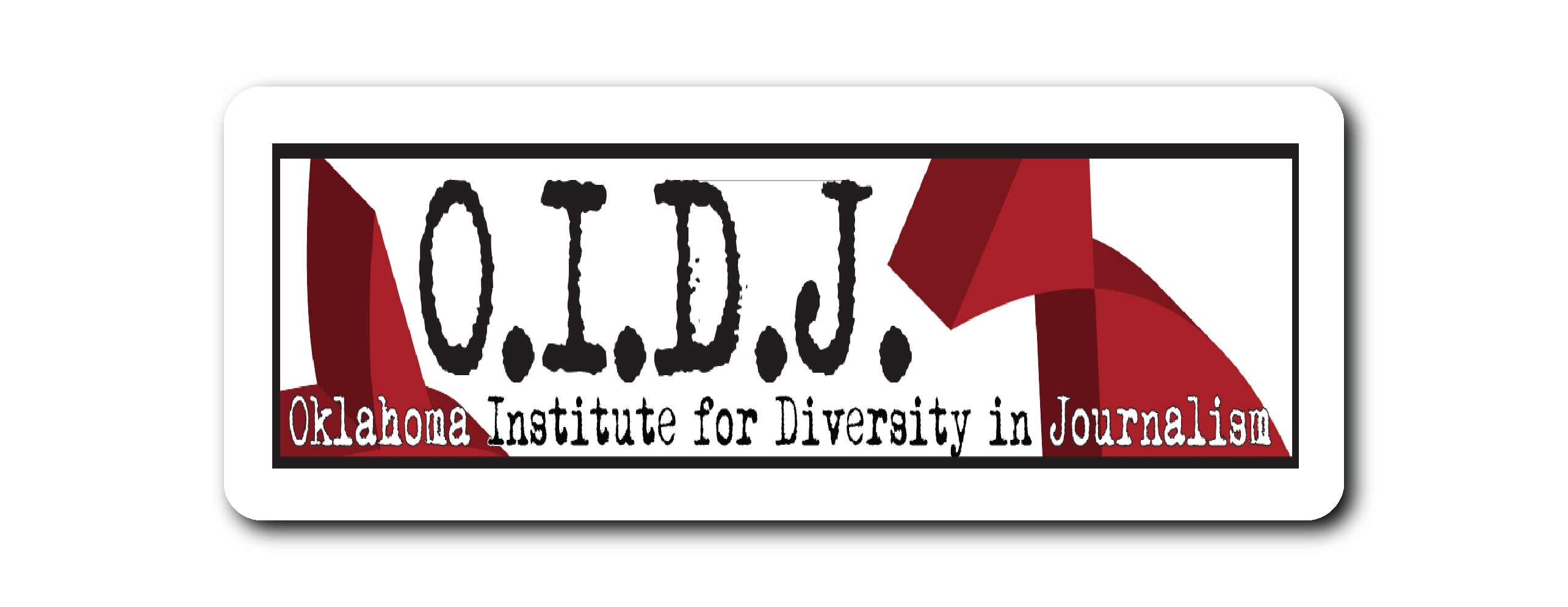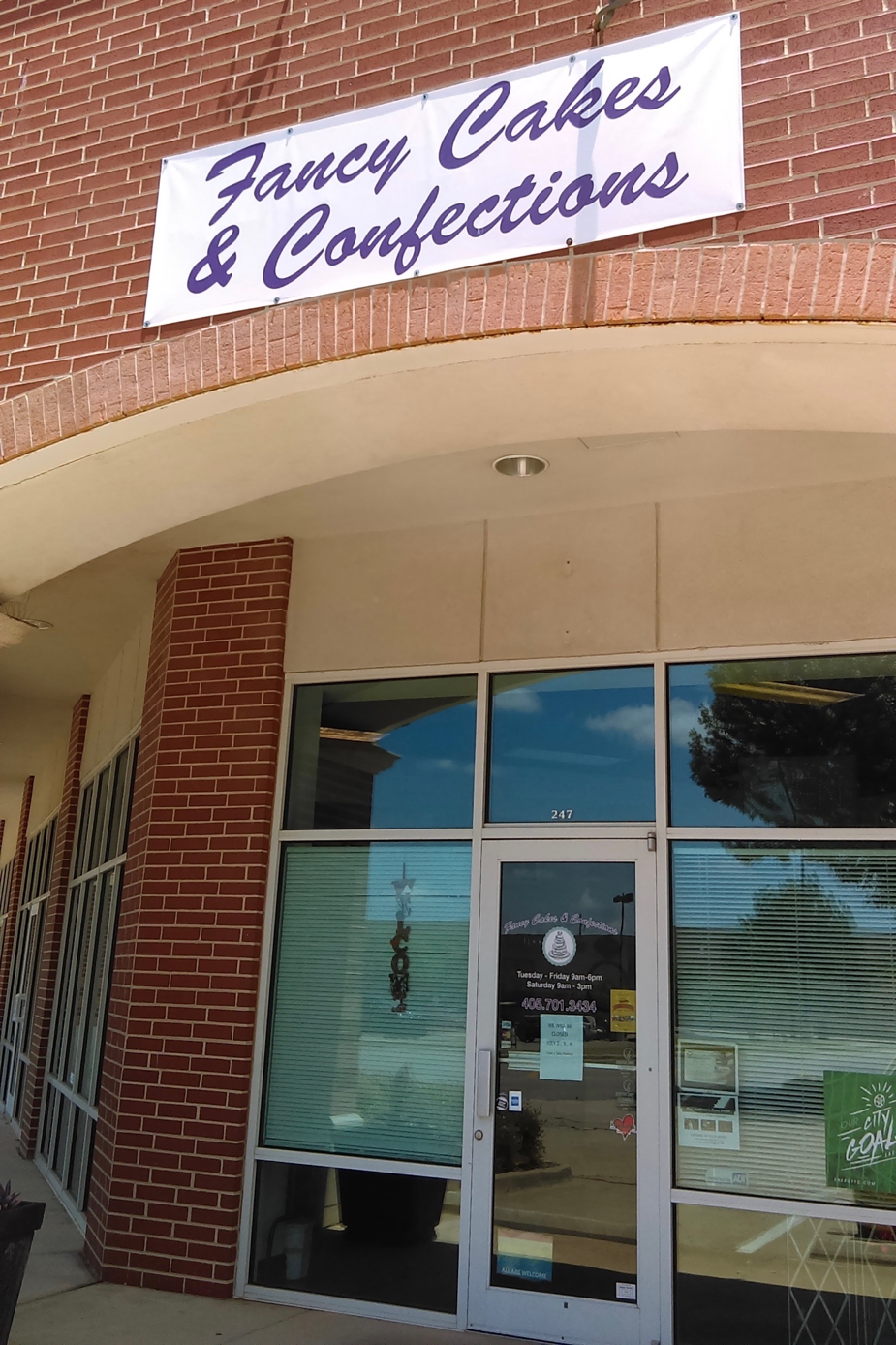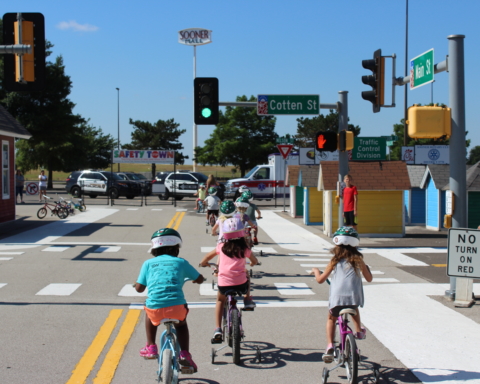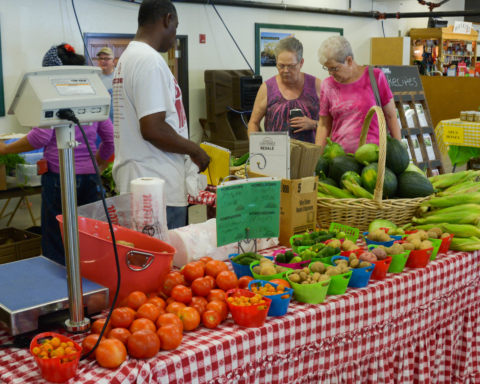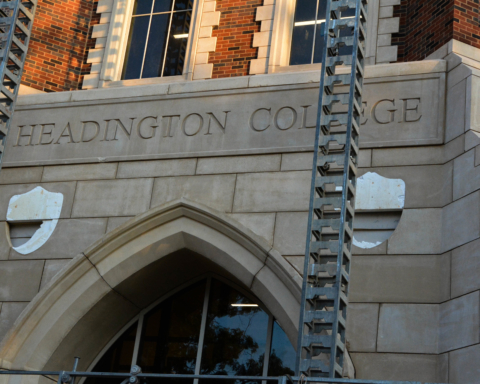In 2013, The Cube, a drive-thru convenience store in Norman, displayed a sign on one of its bathroom doors that read, “NO TRANS-GENDER ZONE.” The Cube faced immediate backlash from the LGBTQ community in Norman.
In more than half of U.S. states, no protection exists to keep businesses from discriminating against individuals based on sexuality, race and gender. With members of the LGBTQ community being refused service and fired from their jobs because of their sexuality, Meredith G.F. Worthen thought something needed to be done.
In 2011, Worthen created The Welcoming Project in Norman. The Welcoming Project reaches out to business owners and organizations and asks whether they are willing to display the Welcoming Project’s rainbow flag sign that reads, “All Are Welcome.” Displaying the sign lets members of the LGBTQ and local community know the establishment is a non-discriminatory and safe space for all.
Fancy Cakes and Confections, a bakery in Norman is one example of an establishment that is part of The Welcoming Project.
The manager of Fancy Cakes and Confections, Debra Van Wagner, has the symbol of The Welcoming Project on her shop’s front door. The Welcoming Project contacted Van Wagner first and asked whether she would support them, and she didn’t think twice before agreeing.
“Why wouldn’t I support it?” Van Wagner said when asked why she chose to support the project.
Van Wagner said there have never been any disputes in her store over sexuality or gender, but she still feels she should have the sign on her front door.
“Too many bakers around here turn people away because of it,” Van Wagner said.
She does not allow discrimination to occur in her store.
Van Wagner said she has friends who are members of the LGBTQ community, but they aren’t the reason for her supporting The Welcoming Project. She said she believes they should be treated like anyone else.
“I don’t treat them any differently than anyone else who walks in my store,” Van Wagner said.
The Welcoming Project has now expanded to cover five countries and all fifty states. To learn more, visit the project’s website.
